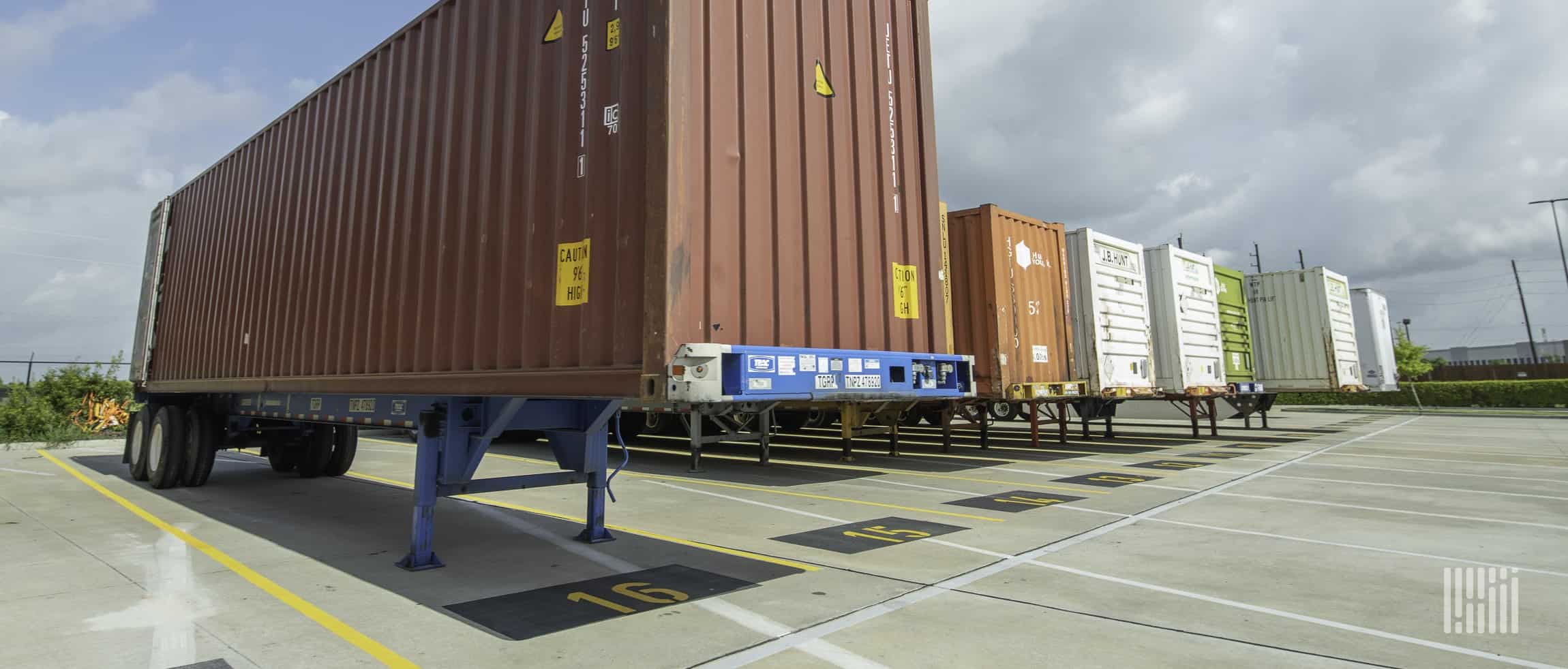Owner operator power only jobs have emerged as a unique and exciting niche in the trucking industry. These roles, which involve power only contracts, are distinct opportunities for truck owner operators specializing in power only loads. The jobs form a critical component of the freight matching process, creating a bridge between shippers and carriers.
Despite the importance and profitability of these roles, finding the right power only owner operator trucking jobs can be a complex task. This comprehensive guide aims to navigate aspiring truck owners through the process.
And when you’re finished reading, explore more articles in our ‘Power only trucking’ article series:
- What is power only trucking?
- Pros and cons of becoming a power only owner operator
- How to find owner operator power only jobs
- Best power only load boards
What is a power only load?
A power only load refers to a specific type of trucking arrangement where the carrier, often an owner operator, provides only the tractor or power unit to haul a trailer. The trailer, loaded with the freight, is typically supplied by the client or another party.
In this setup, the trucking company or independent trucker is responsible for supplying the ‘power’ to pull the load, hence the term ‘power only.’ This arrangement allows for greater flexibility, as the carrier can transport various types of freight without owning specific trailers, and it often plays a vital role in the logistics and transportation industry.
Along with flexibility, the benefits of power only trucking jobs for owner operators include the potential for higher income, and diverse job opportunities. Understanding power only contracts and aligning with power unit only trucking companies that share your values can lead to consistent work.
Challenges might include finding direct freight loads, competition, and meeting specific requirements from power only carriers.
How power only owner operator jobs work
Power only trucking works by separating the responsibilities of providing the tractor (or power unit) and the trailer. Here’s a detailed explanation of how it functions:
- Contractual agreement: A carrier, often an owner operator, agrees to haul a trailer for a client. Power only trucking contracts may be facilitated through power only load boards, direct freight services, or other means of freight matching.
- Tractor provision: The carrier provides the tractor, also known as the power unit, while the client or a third party provides the loaded trailer. The tractor is the ‘power only’ part of the equation.
- Connection and inspection: The carrier connects the tractor to the provided trailer. An inspection is usually carried out to ensure compatibility and safety.
- Transportation: The power only unit (tractor) then hauls the trailer to its destination. The flexibility in this arrangement allows carriers to transport various types of trailers and loads without owning them.
- Delivery and unhooking: Upon reaching the destination, the carrier delivers the trailer and unhooks the tractor. They may then pick up another trailer for the return journey or the next assignment.
- Billing and payment: The carrier bills for the service, often based on distance traveled or a pre-negotiated rate. Payment might also include additional fees for specialized services.
- Repeat business: The carrier can work with multiple clients, taking on various power only loads, which may include dry van, flatbed, or specialized trailers.
Power only trucking is often considered a flexible and efficient option for both carriers and clients. It allows carriers, especially owner operators, to maximize the use of their tractors without investing in specific trailers.
Clients, on the other hand, can leverage specialized or extra trailers without the need for a dedicated fleet of tractors.
Example power only trucking job scenario
Let’s say a construction company needs to move heavy machinery and equipment from their warehouse in Dallas, Texas, to a construction site in Denver, Colorado. The construction company finds a driver through a direct freight power only load board, which specializes in freight matching for power only carriers.
The parties agree on the terms, including pricing, schedules, and specific requirements for handling the construction equipment. Then the construction company loads a specialized flatbed trailer with the machinery and equipment. The trailer is prepared and waiting at the warehouse.
At that point, the owner operator arrives with the tractor at the warehouse, inspects the trailer, and ensures that it’s compatible and safely hooked up. Then the driver hauls the loaded trailer to the construction site in Denver, adhering to all safety regulations and agreed-upon timelines.
Upon arrival at the destination, the owner operator assists in unhooking the trailer and ensures it’s correctly positioned as per the client’s instructions. The construction company pays the agreed-upon fee to the owner operator for the power only trucking services.
Ideally, the owner operator will have found another power only load nearby, which can be hooked up and transported back to Texas.
How to prepare for a power only freight trucking job search
Before exploring power only owner operator jobs, ensure you have the necessary qualifications. This includes standard trucking licenses, appropriate insurance, and membership with owner operator associations or an independent truckers association.
Understanding power only contracts, owner operator opportunities, and the direct freight landscape is vital. This includes knowing how power only loads function, what power only dedicated services entail, and how to utilize freight matching services effectively.
Where to look for owner operator power only loads
Owner operators looking for power only jobs have a variety of avenues to explore. The demand for power only transportation often allows for numerous opportunities. Here’s where to look:
- Load boards: Utilizing best load boards for power only can connect owner operators with clients looking specifically for power only services. Direct freight load board services are often tailored to these specific requirements.
- Freight matching services: Some platforms specialize in freight matching, pairing carriers with shippers who have power only loads. These services can be an efficient way to find jobs that match an owner operator’s capabilities and preferences.
- Trucking companies: Many power only trucking companies work with owner operators to meet their hauling needs. Aligning with a power only trucking company may provide steady work and support.
- Power only carriers: Specialized power only carriers often look for skilled owner operators to join their teams, offering competitive rates and favorable terms for power only hauling.
- Direct freight services: Connecting directly with companies offering direct freight can lead to repeat business and long-term contracts. Industries like construction, manufacturing, and retail may have ongoing power only needs.
- Networking: Leveraging the power of networking through industry associations can open doors to exclusive opportunities and partnerships.
- Local opportunities: Searching for local owner operator power only jobs might lead to opportunities in a particular region or community. These could be seasonal local power only loads, project-based, or long-term commitments.
- Online job portals: Various websites and apps cater specifically to trucking and logistics, including power only owner operator jobs. These platforms often allow filtering and customization to help find the perfect match.
- Social media and online communities: Engaging in online communities focused on power only hauling, owner operator jobs trucking, or specific power only truck loads could uncover unique and less-advertised opportunities.
Find more power only jobs for owner operators
Finding power only jobs as an owner operator requires a blend of technology, networking, and industry knowledge. By utilizing various platforms, services, and relationships, owner operators can secure more power only loads. At the same time, they can build long-lasting relationships that foster growth and success in the field.
Whether it’s long-haul or local, dry van or specialized trailers, power only hauling provides a dynamic and rewarding opportunity for owner operators.
FAQ
The pay for power only loads can vary widely based on factors. These include distance, type of freight, region, and demand, with rates ranging from $1.50 to $3.00 per mile or more.
Yes, many owner operators and carriers make money with power only loads. They allow for flexibility in hauling various types of trailers without the need to invest in specific trailer types. This often results in profitable opportunities.
Power only trucking can be worth it for many truckers, especially owner operators. It offers the ability to maximize the use of a tractor without owning various trailers, potentially reducing overhead and providing diverse and steady income streams.



